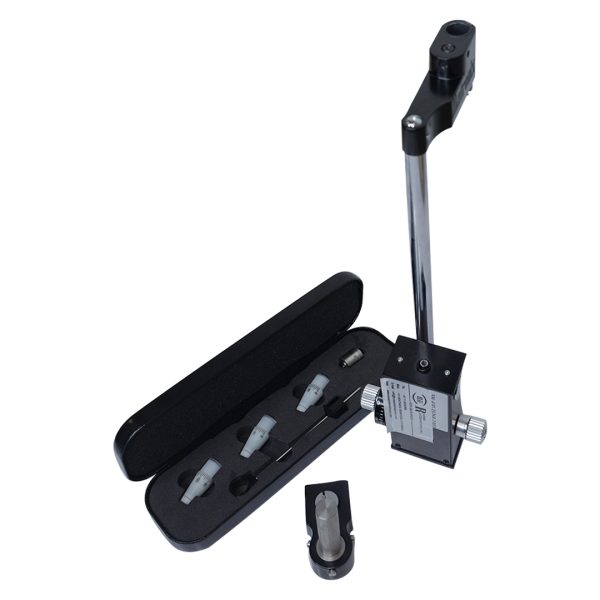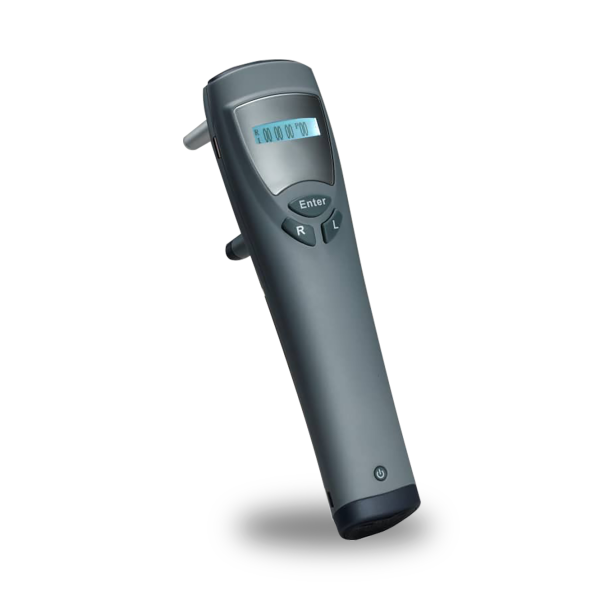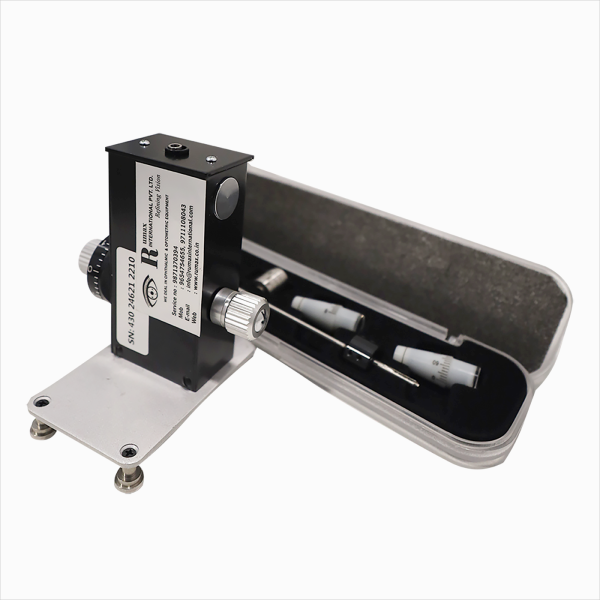A tonometer is a diagnostic tool used to monitor intraocular pressure (IOP) inside the eye, which is an important sign in the detection and management of glaucoma. For preserving the best possible eye health, it offers fast, precise, and non-invasive pressure measurements.
Role of Tonometers in Clinics and Hospitals
An important eye care device for assessing intraocular pressure (IOP), an essential consideration in the diagnosis as well as management of glaucoma and other eye conditions, is a tonometer. It assists eye care providers with identifying early indicators of optic nerve injury and tracking the efficacy of treatment by precisely measuring the fluid pressure inside the eye. Tonometers are frequently employed as part of standard eye exams in hospitals, eye clinics, and optical facilities to guarantee thorough evaluations of visual health. They provide accurate and comfortable testing for patients and are available in a variety of variants, including contact and non-contact varieties. The tonometer's rapid, dependable, and non-invasive function helps to protect vision and avert possible vision loss by immediately identifying and treating elevated intraocular pressure.
Our Range of Tonometers and Their Features
The Applanation Tonometer works on the Goldmann principle, flattening a small portion of the cornea to provide highly accurate and consistent readings; it is commonly installed on slit lamps and is suited for hospital and clinical use. However, the Rebound Tonometer is a portable, handheld device that uses a small, lightweight probe to measure IOP quickly and contact based without the need for anesthesia. This makes it ideal for field examinations, pediatrics, and elderly patients. With German-engineered design, seamless mechanical operation, and long-lasting durability, the Applanation Tonometer Zeiss is the epitome of quality tonometry, guaranteeing accurate readings even at high volume settings. These models all share the same features, such as sturdy frame, ergonomic design, ease of sterilizing, and low maintenance costs. Clinical efficiency and patient comfort are improved by their primary features, which include good measurement accuracy, clear readings, and easy use. With their CE and ISO certifications, which guarantee worldwide standard compliance, safety, and dependability, all models are essential instruments for eye care professionals in the long-term control of eye pressure and in the accurate detection of glaucoma.
Matronix Optotechnik: Supplier of CE & ISO-Certified Eye Care Tools
Matronix Optotechnik manufactures high-quality tonometers which offer reliable intraocular pressure assessments required for glaucoma identification and eye health tracking. Our tonometers are all CE and ISO certified, guaranteeing clinical accuracy and worldwide quality standards. Matronix Optotechnik is an ideal choice for eye care professionals because when you purchase from us, you are investing in quality, certified devices supported by skilled guidance, reasonable costs, quick shipping, as well as trustworthy after-sales service.
Frequently Asked Questions
A tonometer measures intraocular pressure (IOP), which is crucial for diagnosing, monitoring, and managing glaucoma and other eye conditions that can damage the optic nerve.
Elevated IOP can be an early sign of glaucoma. Regular monitoring helps in timely intervention, preventing irreversible vision loss and supporting long-term optic nerve health.
Tonometers are widely used in hospitals, eye clinics, optical centers, and field screenings as part of routine eye examinations.
We offer multiple variants including:
Applanation Tonometer: Goldmann principle-based, mounted on slit lamps for high clinical accuracy
Rebound Tonometer: Portable, handheld model ideal for pediatrics, elderly patients, and field checkups
Applanation Tonometer Zeiss: German-engineered with superior precision for high-volume practices
No. Tonometers are designed for quick, comfortable, and non-invasive IOP measurement. Rebound tonometers often require no anesthesia.
Accurate & consistent IOP readings
Safe and patient-friendly testing
Easy to operate and sterilize
Strong and durable structure
Minimal maintenance requirements
Yes. Rebound tonometers are especially helpful for children and elderly patients due to their gentle operation and portability.
Absolutely. All models are CE and ISO certified, ensuring international safety, reliability, and quality compliance.



